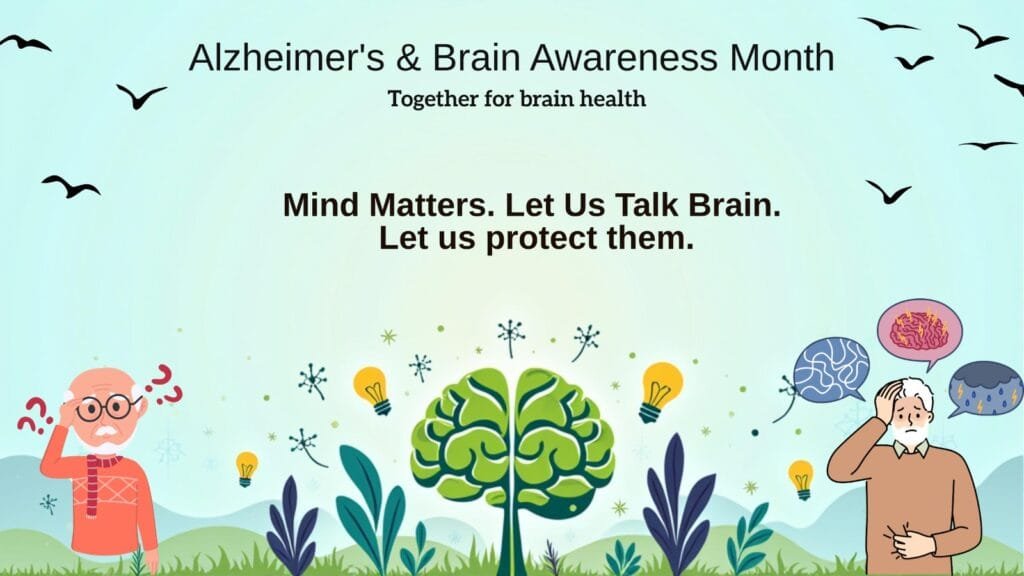Every June, we observe Alzheimer’s & Brain Awareness Month, a time to elevate public understanding of Alzheimer’s disease, honor those affected, and advocate for proactive brain health at every stage of life.
In the United States, more than 6.9 million people aged 65 and older are living with Alzheimer’s disease. This figure is expected to double by 2050 unless we make significant strides in awareness, prevention, diagnosis, and care.
What Is Alzheimer’s?
Alzheimer’s is a progressive neurodegenerative disease that primarily impacts memory, thinking, and behavior. It is the most common form of dementia, accounting for 60–80% of all dementia cases. Over time, the disease erodes cognitive function, independence, and identity, not only affecting those diagnosed, but profoundly reshaping the lives of their families and caregivers.
Unlike typical age-related memory decline, Alzheimer’s is a pathological condition, characterized by the buildup of amyloid plaques and tau tangles in the brain. These changes damage neurons and interfere with their communication, ultimately leading to widespread brain shrinkage and loss of function.
Why Awareness Matters
Alzheimer’s is not just a personal or familial challenge, it is a national public health crisis. In 2024 alone, Alzheimer’s and other dementias will cost the U.S. over $360 billion, much of which is borne by Medicare, Medicaid, and unpaid caregivers.
Raising awareness:
- Helps reduce stigma and misinformation
- Encourages early detection and intervention
- Supports funding for critical research
- Builds community around patients and caregivers
Promotes lifestyle changes that may reduce risk
What You Can Do: Brain Health Is Lifelong
While age and genetics are key risk factors, emerging evidence suggests we can influence brain aging through modifiable behaviors.
Evidence-based strategies to promote brain health:
- Stay mentally active: learning, problem-solving, creativity
- Move your body: regular physical activity increases blood flow to the brain
- Eat for your brain: Mediterranean and DASH diets have shown protective effects
- Prioritize sleep: deep sleep helps clear toxins linked to Alzheimer’s
- Stay connected: social engagement is a powerful buffer against cognitive decline
- Manage chronic conditions: including diabetes, hypertension, and depression
Join the Movement
Throughout June, we wear purple, share stories, and stand in solidarity with the millions living with Alzheimer’s. But awareness must go beyond symbolism. Let’s advocate for compassionate policies, support caregivers, fund groundbreaking research, and take our own brain health seriously.
You have a brain. Use it to protect it.
Because when we protect the mind, we protect the future.

